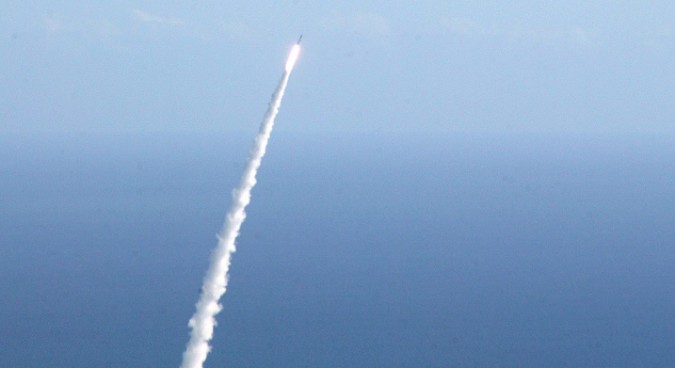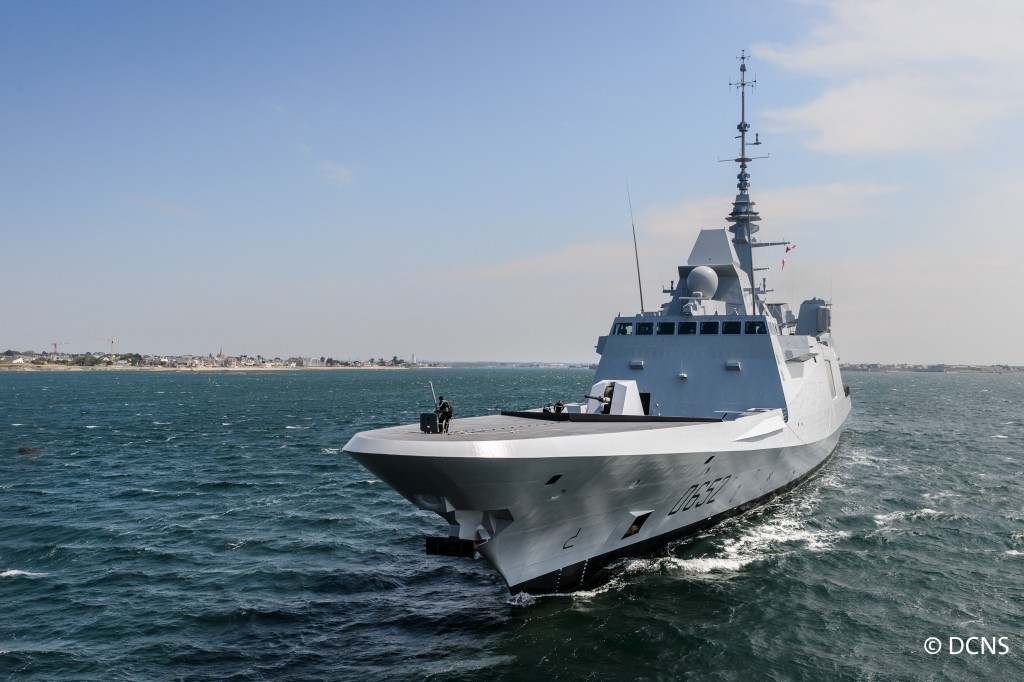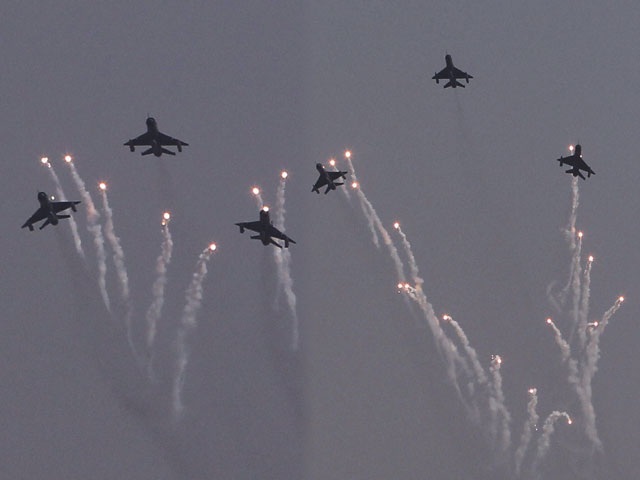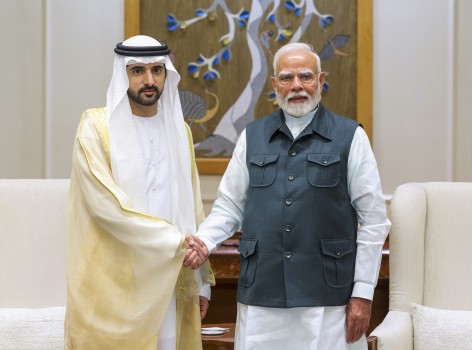
An unrelated file photo.
SEOUL (AFP): North Korea test fired what appeared to be two medium-range ballistic missiles on Friday, just days after leader Kim Jong-Un promised a series of nuclear warhead tests and missile launches.
Military tensions have been soaring on the divided Korean peninsula since the North carried out its fourth nuclear test on January 6, followed a month later by a long-range rocket launch that was widely seen as a disguised ballistic missile test.
US defence officials said they had tracked two launches -- both believed to be medium-range Rodong missiles fired from road-mobile launch vehicles.
The Rodong is a scaled-up Scud variant with a maximum range of around 1,300 kilometres.
South Korean military officials said the first missile was launched from Sukchon in the country's southwest at 5:55 am (local time) and flew 800 kilometres before splashing down into the East Sea (Sea of Japan).
The second, fired about 20 minutes later, disappeared off radar early into its flight, the officials said.
Friday's launches came a day after US President Barack Obama signed an order implementing tough sanctions adopted earlier this month against North Korea by the UN Security Council.
For the past two weeks, Pyongyang has maintained a daily barrage of nuclear strike threats against both Seoul and Washington, ostensibly over ongoing, large-scale South Korea-US military drills that the North sees as provocative rehearsals for invasion.
To register its anger at the joint exercises, the North fired two short-range missiles into the East Sea on March 10.
A few days later, Kim announced that a nuclear warhead explosion test and firings of "several kinds" of ballistic missiles would be carried out "in a short time".
Existing UN sanctions ban North Korea from the use of any ballistic missile test, although short-range launches tend to go unpunished.
A Rodong test is more provocative, given its greater range, which makes it capable of hitting most of Japan.
The last Rodong test was in March 2014, when two of the missiles were fired into the East Sea.
Japanese Prime Minister Shinzo Abe said he had ordered his government to investigate Friday's launch, and confirm the safety of shipping in the splashdown zone.
The US State Department issued a statement calling on Pyongyang to refrain from any actions that could "further raise tensions".
 Previous Article
Previous Article Next Article
Next Article












The Indian Air Force, in its flight trials evaluation report submitted before the Defence Ministry l..
view articleAn insight into the Medium Multi-Role Combat Aircraft competition...
view articleSky enthusiasts can now spot the International Space Station (ISS) commanded by Indian-American astr..
view article